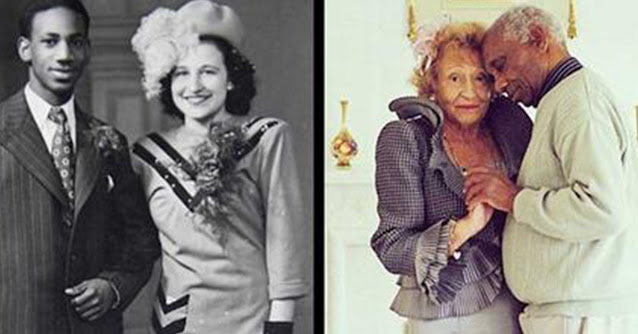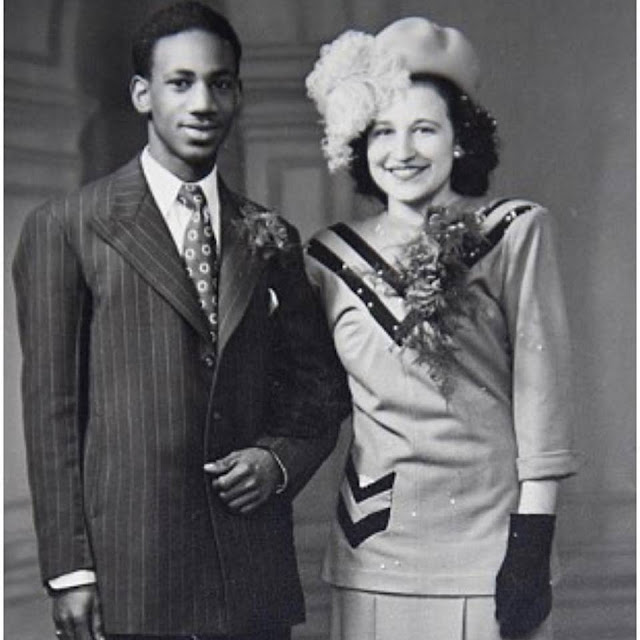Forbidden Love
The couple met during World War II when Jake was serving in the United Kingdom. He was originally from Trinidad and Mary was living in Britain. In an interview in 2016, Mary explained,
“I met Jake when he came over during the war from Trinidad, as part of the American forces stationed at the Burtonwood base near my home in Lancashire. We were at the same technical college. I was having typing and shorthand lessons and he’d been sent there for training by the Air Force. He was with a group of Black friends and they called my friend and me over to talk. We didn’t even know they spoke English, but Jake and I got chatting. He quoted Shakespeare to me, which I loved.” [2]
When the war ended in 1945, Jake had to return to Trinidad. They frequently sent each other letters but it didn’t take long for Jake to feel like he couldn’t be apart from her anymore. Within a few years, he was back in Britain, down on one knee, asking Mary to be his wife. “He asked me to marry him, quite out of the blue, when I was only 19,” Mary said. “When I told my father I was going to marry Jake he said, ‘If you marry that man you will never set foot in this house again.’ He was horrified that I could contemplate marrying a Black man.”
Rejected By Her Family
“My father threw me out, and I left with only one small suitcase to my name. No family came to our register office wedding in 1948,” Mary added. “The first years of our marriage living in Birmingham were hell—I cried every day, and barely ate. No one would speak to us, we couldn’t find anywhere to live because no one would rent to a Black man, and we had no money.”
Strangers would gawk at them in the street. The stress was terrible, and to make matters worse, Mary had a miscarriage at eight months. “It wasn’t related to the stress I was under but it broke my heart, and we never had any more children,” she said. They already had three children at the time, Raymond, Cindy, and Patty. [2] “But gradually life became easier. I got teaching jobs, ending up as a deputy headteacher. First Jake worked in a factory, then for the Post Office.”
The couple began to make a few friends, but it wasn’t easy. “I used to say to new friends: ‘Look, I have to tell you this before I invite you to my home—my husband is Black,'” Mary said.
When her father passed away, Mary was 30. The two managed to reconnect but he never approved her marriage to Jake. But that didn’t stop them.

